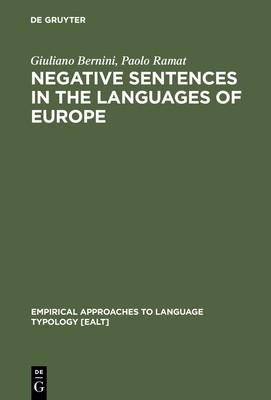
- We will send in 10–14 business days.
- Author: Giuliano Bernini
- Publisher: Walter de Gruyter
- Year: 1996
- Pages: 287
- ISBN-10: 3110140640
- ISBN-13: 9783110140644
- Format: 15.6 x 23.4 x 1.8 cm, hardcover
- Language: English
- SAVE -10% with code: EXTRA
Reviews
Description
The series is a platform for contributions of all kinds to this rapidly developing field. General problems are studied from the perspective of individual languages, language families, language groups, or language samples. Conclusions are the result of a deepened study of empirical data. Special emphasis is given to little-known languages, whose analysis may shed new light on long-standing problems in general linguistics.
EXTRA 10 % discount with code: EXTRA
The promotion ends in 16d.16:40:33
The discount code is valid when purchasing from 10 €. Discounts do not stack.
- Author: Giuliano Bernini
- Publisher: Walter de Gruyter
- Year: 1996
- Pages: 287
- ISBN-10: 3110140640
- ISBN-13: 9783110140644
- Format: 15.6 x 23.4 x 1.8 cm, hardcover
- Language: English English
The series is a platform for contributions of all kinds to this rapidly developing field. General problems are studied from the perspective of individual languages, language families, language groups, or language samples. Conclusions are the result of a deepened study of empirical data. Special emphasis is given to little-known languages, whose analysis may shed new light on long-standing problems in general linguistics.


Reviews